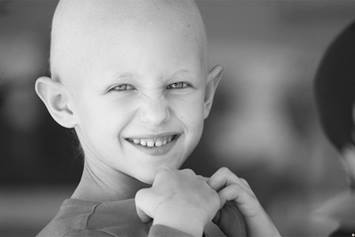
Cell Therapy Study
Scientists have found a way to use special cells called NK cells to help treat a type of blood cancer called AML. They can now grow these cells outside the body and give them to patients in multiple doses, making the treatment safer and more effective. Read more about how researchers have used their approach for growing large numbers of NK cells to allow repeated dosing for a more effective and less toxic treatment in Pediatrics Nationwide.
Open Cell Therapy Clinical Studies
Acute Myeloid Leukemia
Researchers Studying Safety and Efficacy of Expanded, Universal Donor Natural Killer Cells for Relapsed, Refractory AML
The goal of this study is to determine the safety and recommended phase II dose of adoptive NK cell therapy using UD-NK cells.
Researchers Studying Donor NK Cell Infusions in patients with High-Risk AML Undergoing a HaploHCT
The goal of this study is to test the safety and effectiveness of a new treatment of infusing natural killer (NK) cells into the patient’s body to help fight AML.
Hematopoietic Stem Cell Transplantation
TB19DHCT: Depletion of αβT Cells and CD19+ B Cells in Alternative Donor Stem Cell Transplant for Children and Young Adults with Blood Cancers
Help researchers study the one-year overall survival of patients undergoing allogeneic HSCT using the T-Cell Receptor (TCR) αβ/CD19+ depleted platform and grafts from alternative donors (MUD, MMUD and haploidentical).
CSIDE: A Phase II Trial Comparing Low and Moderate Busulfan Doses in Infants with Severe Combined Immunodeficiency (SCID) Undergoing TCRαβ+/CD19+ Depleted Transplant, by the PIDTC and PBMTC
Help researchers study if lower doses of chemotherapy will help babies with SCID to achieve good immunity with less short and long-term risks of complications after transplantation.
Infectious Diseases
Pilot Study of Donor Virus-Specific T-Cells to Treat Cytomegalovirus (CMV) or Adenovirus (AdV) Infections After Solid Organ or Stem Cell Transplant
Help researchers assess how safe and practical a new treatment (anti-viral cytotoxic T-lymphocytes, or CTLs) is for patients who have had a solid organ transplant (SOT) or hematopoietic cell transplant (HCT) and are dealing with an infection or reactivation of cytomegalovirus (CMV) or adenovirus (AdV).
Pilot Study in the Treatment of Refractory Adenovirus (ADV) Infection with Related Donor ADV Cytotoxic T-Lymphocytes (ADV-CTLs) in Children, Adolescents and Young Adult Recipients
The goal of this study is to find out if we can safely give the patient special immune cells called cytotoxic T-cells (CTLs). These cells are made from the patient’s stem cell donor's cells or a closely matched family donor and grown in the lab. These immune cells are designed to help fight adenovirus (ADV) infection.
A Pilot Study on Treating Resistant Epstein-Barr Virus (EBV) Infections in Children, Adolescents, and Young Adults Using Donor Immune Cells Specifically Targeting EBV
The goal of this study is to see if we can safely give the patient special immune cells called cytotoxic T-cells (CTLs). These cells are made from the patient’s stem cell donor or a closely matched family donor and grown in the lab. These immune cells are designed to help fight Epstein-Barr Virus (EBV) infection.
Neuroblastoma
Researchers Studying Universal Donor NK Cells in Combination with IV Drug Therapy in Patients With Relapsed or Refractory Neuroblastoma
Help researchers study the safety, tolerability, and efficacy of a fixed dose of UD TGFβi NK cells in combination with standard irinotecan, temozolomide, and dinutuximab IV therapy.
Neuro-Oncology
Early-Phase Study of Targeted Natural Killer Cell Therapy for Children and Young Adults With Recurrent, Progressive or Refractory Brain Tumors
The purpose of this study is to see if it is safe and feasible to treat malignant brain tumors with donor natural killer (NK) cells. The hope is to see if the NK cells are effective against the tumors and improve quality of life.
PBTC-059: Phase 1 Trial of HER2-specific CAR T Cells for Children with Hard-to-Treat or Returning Ependymoma
Help researchers evaluate the safety profile of a type of immune therapy called HER2 CAR T cells (short for HER2 chimeric antigen receptor T cells).
Sarcoma
Researchers Studying Donor NK Cell Infusions Combined With IV Medications in Patients With Relapsed or Refractory Pediatric Sarcomas
Help researchers determine if adding infusions of a type of immune cell called a “natural killer,” or NK cell to the sarcoma chemotherapy regimen GEM/DOX (gemcitabine and docetaxel) is safe and can improve outcomes in people with childhood sarcomas that have relapsed or not responded to prior therapies.



